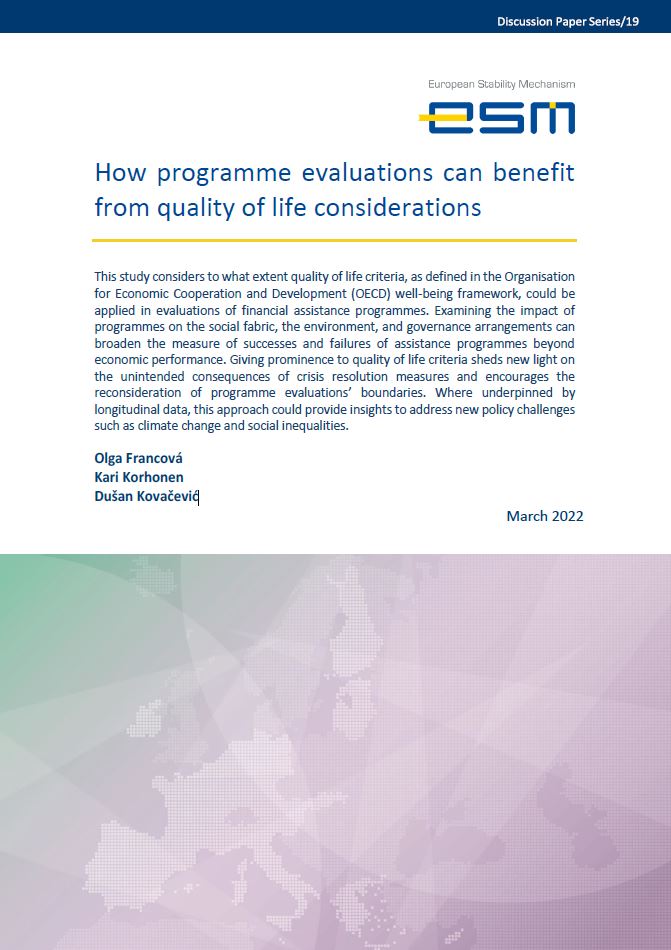Title: How programme evaluations can benefit from quality of life considerations
Download PDF: Discussion Paper 19
Authors: Olga Francová, Kari Korhonen and Dušan Kovačević
Abstract:
This study considers to what extent quality of life criteria, as defined in the Organisation for Economic Cooperation and Development (OECD) well-being framework, could be applied in evaluations of financial assistance programmes. Examining the impact of programmes on the social fabric, the environment, and governance arrangements can broaden the measure of successes and failures of assistance programmes beyond economic performance.
Giving prominence to quality of life criteria sheds new light on the unintended consequences of crisis resolution measures and encourages the reconsideration of programme evaluations’ boundaries. Where underpinned by longitudinal data, this approach could provide insights to address new policy challenges such as climate change and social inequalities.
Disclaimer:
The views expressed in this discussion paper are those of the authors and do not necessarily represent those of the ESM or ESM policy. No responsibility or liability is accepted by the ESM in relation to the accuracy or completeness of the information, including any data sets, presented in this paper.
Source: European Stability Mechanism | Discussion Paper Series | Volume 2021 no. 19 | March 2022 | 66 Pages
Copyright © European Stability Mechanism, 2022| All rights reserved. Any reproduction, publication and reprint in the form of a different publication, whether printed or produced electronically, in whole or in part, is permitted only with the explicit written authorisation of the European Stability Mechanism.
